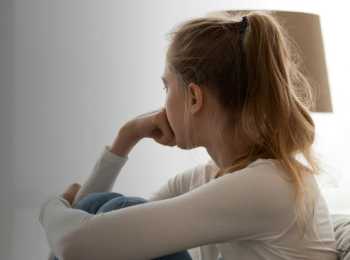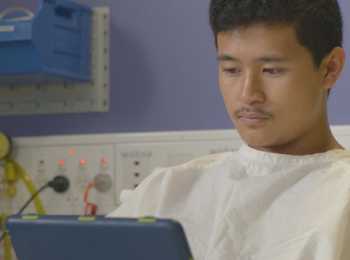Dealing with changes to your body
Some people notice changes to their body during treatment. Some people have said that they haven’t quite recognised themselves during treatment.
Everyone experiences confidence and body image issues at some time in their life, particularly as a teenager and young adult. Your cancer experience can change how your body looks, feels and works and can make things even harder.
Whether it’s weight loss, weight gain, loss of hair or scarring, your body may begin to look and feel like it doesn’t belong to you. You may be uncomfortable about your appearance and about feeling different.
It is hard not to be affected by these changes. How you look is often really tied up with how you feel about yourself. But the good news is that with time, your appearance and feelings about your body will change. It may take time to get used to, but it will become easier.
While dealing with unwanted changes to your looks can be really hard, it may help to remember that underneath all of the changes you are still you!
You might feel:
- Loss of confidence and self-esteem – you might be really self-conscious of your physical changes and avoid doing things you used to enjoy like going to the beach, playing sport and wearing certain clothes.
- Shy – you don’t feel like hanging out with friends or going out in public.
- Frustrated – that your body doesn’t work like it used to.
- Angry – it is not fair that you had to go through this and that you had no control over the changes that have happened to your body.
- Nervous – that you will be laughed at or stared at.
- Embarrassed or ashamed – about the way you look now.
- Grief – over the loss of your ‘old’ body.
- Scared – that your friends, partner and colleagues will treat you differently.
- Worried – about being less attractive and not being able to find a partner in the future.
When I was diagnosed I had waist-length hair, so losing it had a massive impact on how I saw myself. It was also pretty daunting to have strangers ask why I'd shaved my head or even just stare at me in public. At first I wore hats and beanies, and tried on a wig, which wasn't for me, but eventually I found my confidence in wearing bandanas and even learnt to embrace my baldness. Marnie, 25
I didn't lose my hair, but the surgeons needed to shave some of my hair. My hairdresser, whom I have known since I was a baby, offered to style my hair to help with my confidence with my scar, which I now always like to show off. Amy, 25
Even changes that are not visible on the outside can affect how you feel about yourself. It doesn’t make you vain or selfish to be worried about your body and how people see you.
Things that may help you cope with changes to your appearance:
- Have a makeover. Experiment with a new look. A new wig or hat, some makeup or some clothes … even if you don’t feel it.
- Talk about it. Your family and friends may not realise how much the change to your appearance is worrying you. People will understand.
- Try to treat your body with respect. It’s been through a lot already. Eat healthy foods, get enough sleep and only exercise as much as your body can handle.
- Hang out with people who make you feel good and accept you for the way you are.
- We know it’s a cliché but try to remember that you are the same person and that your personality, interests and talents are still there. You are not your cancer.
When I lost my hair, I would find nice, fun studs and dangly earrings to make me look fun and different and not hide away my personality. Lena, 24
After treatment – late effects
‘Late effects’ are health impacts from cancer treatment that don’t occur until years after treatment has finished. They do not mean that cancer has returned.
Not everyone who has cancer treatment will suffer from long-term or late effects. Even people who had the same type of treatment won’t always suffer the same side effects.
The potential effects depend on many different factors, including what kind of cancer you had, where it was in the body, how it was treated and how old you were. Late effects can affect any part of the body and include:
- Lung, heart, kidney and liver problems
- Developing another type of cancer
- Cataracts (clouding of the lens in the eye, which can cause difficulty with vision)
- Fertility problems
- Bowel problems
- Thyroid problems
- Tooth decay
- Changes in bone density (osteoporosis)
- Memory and concentration problems.
Managing late effects
Late effects may be hard to deal with, especially after you have made it through all the tough stuff that your cancer has already thrown at you. It might seem like you will never escape from it. These tips might help.
After finishing treatment, keep a detailed record of your diagnosis, treatments and ongoing plan of care. This will provide doctors you see in the future with a good knowledge of your cancer.
Keep your follow-up appointments. Tell your doctor about any symptoms you have. It is always best to have them checked rather than to worry.
Ask your medical team if you are at risk of developing late effects and what signs to look out for.
Be healthy. We aren’t certain if we can prevent late effects, but it may still help to stay as healthy as you can. This includes protecting yourself in the sun and avoiding smoking.
Peter MacCallum Cancer Centre has more information about the long-term and late effects of treatment.


















